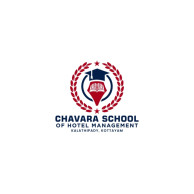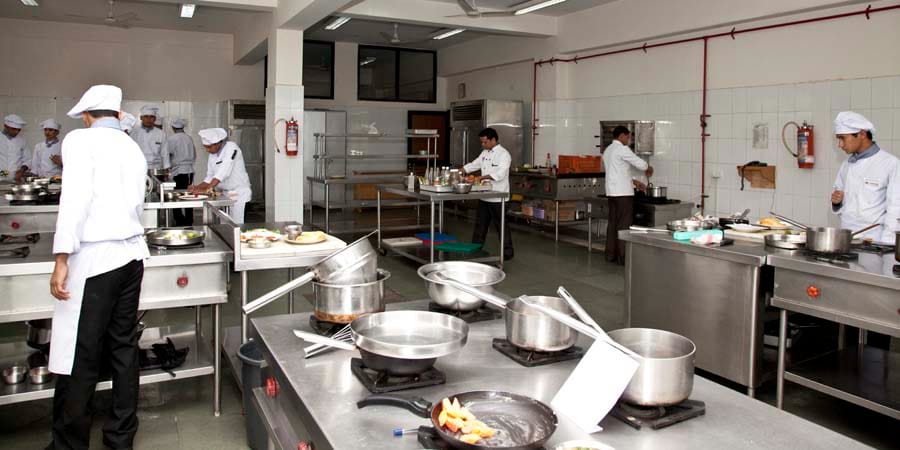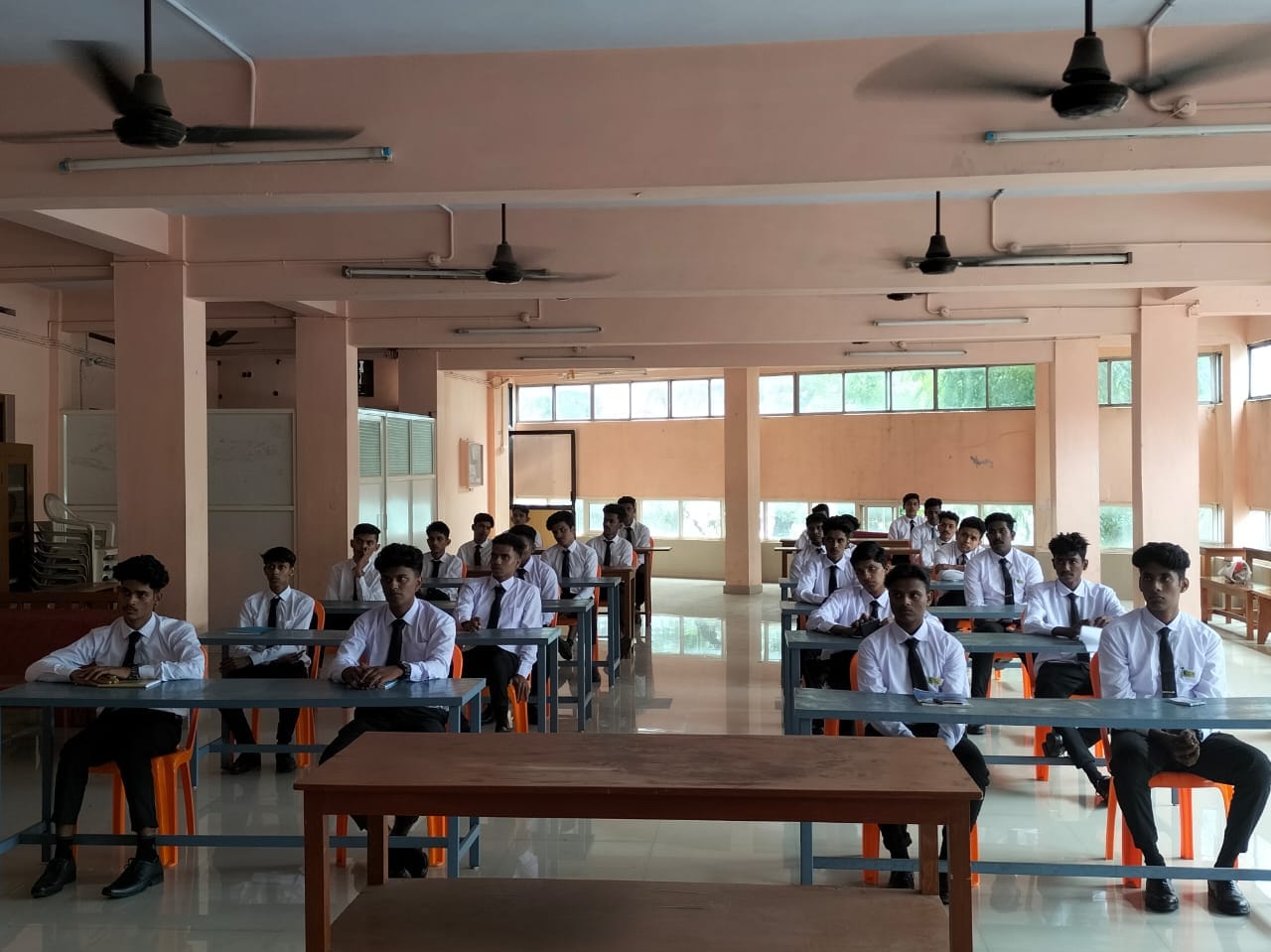Top 10 Catering Science Courses in Kottayam
Catering Science courses in Kottayam focus on preparing students for careers in the hospitality industry, emphasizing culinary skills, food safety, and management.
Catering Science courses are educational programs that provide comprehensive training in hospitality management, culinary arts, and food service operations. These courses are designed to equip students with the skills and knowledge required for various roles in the hospitality sector.
-
Manipal Institute of Hotel Management
- Address: MICE Campus, Muttuchira P.O., Kottayam, Kerala 686028
-
St. Thomas College of Hotel Management & Catering Technology
- Address: Kurisummoodu, Kottayam, Kerala 686001
-
De Paul Institute of Hotel Management
- Address: De Paul Nagar, Manganam, Kottayam, Kerala 686018
-
Vimal Jyothi Institute of Management and Research
- Address: Jyothi Nagar, Chemperi P.O., Kannur, Kerala 670632
-
Mahatma Gandhi University
- Address: Priyadarsini Hills P.O., Kottayam, Kerala 686560
-
Kottayam Institute of Technology & Science
- Address: Pallickathodu P.O., Chengalam, Kottayam, Kerala 686585
-
Christian College, Kattakada
- Address: Christian College Road, Kattakada, Thiruvananthapuram, Kerala 695572
-
Toc H Institute of Science & Technology
- Address: Arakkunnam P.O., Ernakulam, Kerala 682313
-
Cochin College of Engineering and Technology
- Address: Valiyaparambu P.O., Perumbavoor, Ernakulam, Kerala 683556
-
University of Kerala
- Address: Senate House Campus, Palayam, Thiruvananthapuram, Kerala 695034
Professional Guidance And Mentorship In Catering Science in Kottayam
Professional guidance and mentorship in catering science are crucial for aspiring professionals in the culinary arts and hospitality industry. This specialized form of mentorship provides invaluable insights, practical skills, and industry knowledge essential for success. Mentors in catering science offer guidance on menu planning, food preparation techniques, kitchen management, and culinary innovation. They help navigate challenges unique to the catering industry, such as event management, food safety regulations, and client relations. Mentorship also includes advice on career progression, networking opportunities, and staying updated with industry trends. It fosters a supportive environment for learning, growth, and honing the expertise required to excel in the dynamic world of catering science.
Practical Experience And Hands-On Training In The Field Of Hospitality Science in Kottayam
Hands-on training and practical experience are fundamental components of learning catering science. This field requires not only theoretical knowledge but also mastery of culinary techniques and operational skills. Here's an in-depth look at the importance and benefits of hands-on training in catering science:
Importance of Hands-on Training in Catering Science
Hands-on training in catering science is essential for several reasons:
-
Skill Development: It allows aspiring professionals to develop practical skills in food preparation, presentation, and kitchen management.
-
Real-World Application: Provides experience in real-world scenarios such as catering events, kitchen operations, and menu planning.
-
Problem Solving: Encourages critical thinking and problem-solving skills when faced with challenges in food production and service.
-
Industry Standards: Ensures compliance with industry standards, including food safety regulations, sanitation practices, and quality control.
-
Teamwork and Collaboration: Promotes teamwork and collaboration among kitchen staff, enhancing communication and efficiency.
Components of Hands-on Training
Hands-on training in catering science typically includes:
-
Cooking Techniques: Learning various cooking methods, knife skills, and culinary techniques under the guidance of experienced chefs.
-
Menu Development: Participating in menu planning, ingredient selection, and creating balanced and appealing dishes.
-
Event Catering: Gaining experience in catering for events, understanding client requirements, and managing logistics.
-
Kitchen Management: Practicing kitchen organization, inventory control, and maintaining hygiene standards.
-
Customer Service: Interacting with clients, understanding their preferences, and delivering exceptional service.
Training Methods in Catering Science in Kottayam
Effective training methods are essential for maximizing the benefits of practical experience in catering science:
-
Internships and Apprenticeships: Placement in catering establishments allows individuals to gain hands-on experience under the supervision of experienced chefs and hospitality professionals.
-
Kitchen Simulations: Simulating real-world catering scenarios in controlled environments helps individuals practice skills, refine techniques, and build confidence without the pressure of live events.
-
On-the-Job Training: Learning through direct participation in catering events and daily kitchen operations provides immediate application of knowledge and skills.
-
Workshops and Culinary Classes: Attending culinary workshops, seminars, and specialized classes enhances technical skills, exposes individuals to new culinary trends, and promotes continuous learning.
-
Mentorship Programs: Pairing aspiring caterers with seasoned mentors fosters professional growth, provides personalized guidance, and facilitates networking within the industry.
-
Digital Learning Platforms: Utilizing online resources, e-learning modules, and virtual reality simulations offers flexibility in training delivery and supplements practical learning with theoretical knowledge.
-
Feedback and Evaluation: Regular feedback sessions and performance evaluations help individuals track their progress, identify areas for improvement, and set goals for professional development.
Frequently Asked Questions about Catering science in Kottayam
- What is catering science?
Catering science is the study and application of culinary arts, food preparation, and hospitality management principles in catering and food service industries. It involves mastering cooking techniques, menu planning, kitchen management, and customer service to deliver high-quality dining experiences.
- What skills are essential for a career in catering science?
Key skills essential for a career in catering science include:
- Culinary Skills: Proficiency in cooking techniques, food preparation, and presentation.
- Menu Planning: Ability to design menus that cater to diverse tastes and dietary preferences.
- Kitchen Management: Skills in organizing kitchen operations, managing staff, and maintaining hygiene standards.
- Customer Service: Interpersonal skills to interact with clients, understand their needs, and ensure satisfaction.
- Problem-Solving: Ability to address challenges in food preparation, logistics, and event management.
- What are the career opportunities in catering science?
Career opportunities in catering science include:
- Chef: Specializing in various cuisines and leading kitchen operations.
- Catering Manager: Overseeing catering services for events, ensuring smooth execution.
- Event Planner: Designing and coordinating food services for weddings, parties, and corporate events.
- Food and Beverage Manager: Managing food and beverage operations in hotels, restaurants, or catering companies.
- Entrepreneur: Starting a catering business or food service venture.
- How can I gain practical experience in catering science?
Practical experience in catering science can be gained through:
- Internships: Working in catering companies, hotels, or restaurants to learn hands-on skills.
- Apprenticeships: Training under experienced chefs or caterers to develop culinary expertise.
- On-the-Job Training: Learning by working in kitchens and catering events, gaining real-world experience.
- Culinary Schools: Attending culinary programs that offer practical training and internships.
- What are the challenges faced in catering science?
Challenges in catering science include:
- Time Management: Balancing preparation times with event schedules.
- Quality Control: Maintaining food quality and consistency during large-scale events.
- Logistics: Ensuring timely delivery of food and beverages to event venues.
- Client Expectations: Meeting diverse client preferences and dietary requirements.
- Seasonality: Adapting menus and operations to seasonal changes and event demands.
- How important is food safety in catering science?
Food safety is critical in catering science to prevent foodborne illnesses and ensure compliance with health regulations. It involves proper handling, storage, and preparation of food to maintain hygiene standards and protect consumer health.




